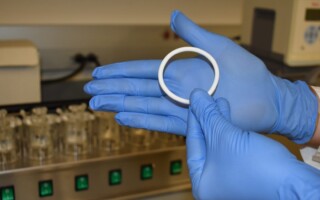
Young women worldwide are confronted with two significant health risks: unintended pregnancy and HIV infection. Oral pre-exposure prophylaxis (PrEP) is a highly effective method of HIV prevention, yet uptake of and adherence to PrEP remains low. Women in sub-Saharan Africa disproportionately shoulder the burden of the HIV epidemic and account for two-thirds of new HIV infections.
Growing evidence suggests many women would be more likely to use an HIV prevention method if it also provided protection against unintended pregnancy. There is an urgent and continued need to develop innovative sexual and reproductive health technologies that women and girls can control, and we must find ways to do this as quickly as possible.
Several novel contraceptive multipurpose prevention technologies (MPTs) are in development, yet it will be many years before one is available.
The Population Council, and Medicines360, are developing a dual prevention pill (DPP) regimen by co-formulating the active ingredients in oral PrEP and oral contraceptives into one tablet to be taken every day. A DPP regimen, which combines two marketed and approved products, is likely to be the fastest pathway to contraceptive MPT introduction.
In addition to product development, the Population Council is conducting two crossover acceptability studies with the University of Zimbabwe and Wits RHI in South Africa to inform the development and introduction of the DPP. The two studies will test the acceptability of an over-encapsulated version of the DPP as a proxy for the co-formulated tablet among women (ages 16–40). In both countries, women currently using oral contraceptives who are at risk of HIV infection will be randomized to the order of using the over-encapsulated DPP for three menstrual cycles and will take PrEP and oral contraceptives separately for three cycles. At the end of six months, women will be asked if they preferred the single DPP or the two separate pills and, in South Africa, participants will have the option of taking either the DPP or two separate pills for an additional six-month Choice period.
The acceptability study results will be important for informing product introduction. In particular, these studies will provide the opportunity to test out counseling strategies, learn which women prefer the DPP versus two separate pills, and prime the community for scaling up this new technology once the co-formulated DPP is available.
A DPP, if available in family planning and HIV clinics, has the potential to play an important role in meeting the sexual and reproductive health needs of women.




